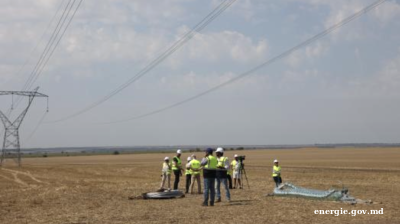President Kassym-Jomart Tokayev of Kazakhstan has raised concern over the future of his country’s largest lake, while declining to mention that its fate mostly depends on Chinese activities upstream.
Tokayev spoke about the shrinking Lake Balkhash during a visit to the Karaganda region that appeared closely tied to a snap presidential vote next month.
In recent years, “there has been a rapid shallowing of Lake Balkhash,” he complained, while referring to the “unsatisfactory technical condition” of the Satpayev canal that transports water into the country’s central regions from the Chinese border.
Tokayev asked officials at the October 5 gathering to study the problem and take measures accordingly.
Water transportation is a perennial source of vexation in Central Asia, where dated infrastructure has made it one of the world’s most water-wasting regions. Just witness the disappearance of the Aral Sea, which Kazakhstan shared with Uzbekistan.
The biggest issue facing Balkhash is increased demand for water along Chinese sections of the Ili River, which accounts for 70% of flows into the lake.
Here the ball is very much in China’s court.
Two years ago Kazakhstan’s then-ecology minister described ongoing negotiations for an agreement on trans-boundary water resources as “very difficult,” while expressing pride that Kazakhstan was the only country of all China’s neighbours that Beijing was even bothering to consult over water issues.
As of April last year, work on the agreement that began in 2015 was 25% complete, the ministry estimated.
That summer, recently dismissed deputy ecology minister Serik Kozhaniyazov argued that the lake was not actually losing volume, and would remain stable as long as 12 cubic kilometres flowed into it every year.
A study back in 2018 by Kazakh academics framed negotiations over common use of the Ili and another river flowing in from China, the Irtysh, as a "casualty of Kazakhstan-China relations.”
The authors argued that Astana was “trying to balance access to adequate water with all the other aspects of its national interest that are connected to its relationships with China.”
Given the fate of the Aral Sea and the impact that disaster had on weather in the surrounding region, the stakes are high.
But Kazakhstan’s broader diplomatic dependence on Beijing has only grown since Russia’s invasion of Ukraine, which has strained Moscow-Astana relations.
Ecology and industry were key themes of Tokayev’s visits to Karaganda and then Pavlodar.
While admitting in Pavlodar that Kazakhstan was not ready to move away from the coal-heated power stations that make up 70% of the national energy mix, the president said that their modernisation to improve output and reduce emissions was a must.
In Karaganda, he reiterated criticism of worker safety at ArcelorMittal Temirtau, the country’s largest steelworks, which recently promised to invest $1bn in its own modernisation.
Karaganda city, as “the industrial locomotive of the country, one of the scientific, educational and cultural centres of Kazakhstan, should become more comfortable for living,” Tokayev added, calling on “urbanists” to assist in the overhaul of the 15-year-old city plan.
“The era of oligarchic capitalism in Kazakhstan is coming to an end,” he promised his enthused audience. “A period is coming of social responsibility before citizens.”
Artyem Sochnev is a writer based in Stepnogorsk, Kazakhstan.
This article originally appeared on Eurasianet here.
Features

Flood corruption scandal shakes the Philippines
The Philippines is grappling with a widespread controversy surrounding its flood control programme, with allegations of billions of pesos being siphoned off from projects meant to protect vulnerable communities.

The European Commission proposes to “creatively” tap Russia’s $300bn of frozen assets with Reparation Loans
The European Commission is floating a new idea of how to “creatively” tap Russia’s $300bn of frozen assets without the need to appropriate, which is legally questionable, by replacing the money transferred to Kyiv with EU-backed bonds.

“Yuri Gagarin” cosmodrome seeking a future in space – and tourism
Golden age of spaceport is long over, with Moscow focused on facilities in Russia. Kazakhstan, however, hopes it can find profitable niche in launching satellites.

Russia’s 13 “drowning men” sink into corporate debt – The Bell
The Central Bank of Russia has quietly acknowledged growing financial distress among the country’s largest companies, identifying 13 corporations as "truly problematic" borrowers at the end of the first quarter.




